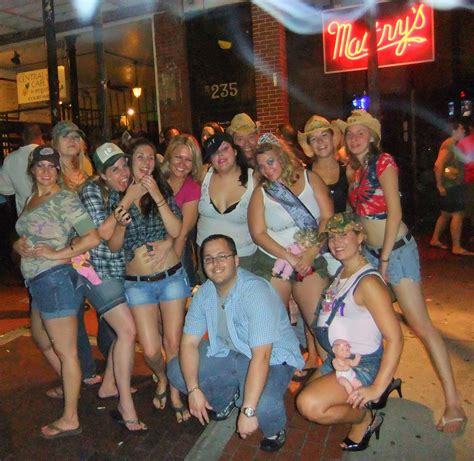1 / 20

2 / 20

3 / 20

4 / 20

5 / 20

6 / 20

7 / 20

8 / 20

9 / 20

10 / 20

11 / 20

12 / 20

13 / 20

14 / 20

15 / 20

16 / 20

17 / 20

18 / 20

19 / 20

20 / 20

❮
❯
What Sociologists Are Discovering About the Unique Culture of Dixie Trailer Park: A Deep Dive into Community, Identity, and Resilience
Dixie Trailer Park, like many similar communities across the Southern United States, presents a complex and often misunderstood social landscape. While popular culture often portrays such communities through a lens of poverty and dysfunction, sociological research reveals a much richer, more nuanced picture. This article explores the emerging findings from sociological studies on Dixie Trailer Park (and similar communities), focusing on the unique cultural elements that shape residents' lives, identities, and experiences of resilience in the face of adversity. We'll delve into themes of kinship, community solidarity, religious belief, economic survival strategies, and the impact of external perceptions on the residents' self-image.
Beyond the Stereotypes: A Sociological Perspective
For too long, portrayals of trailer park communities have been dominated by negative stereotypes. These stereotypes, perpetuated by media representations, often focus on poverty, crime, and a lack of social mobility. However, sociological studies challenge these simplistic narratives, revealing a complex web of social interactions, support systems, and unique cultural practices that are often overlooked. By employing ethnographic methods such as participant observation and in-depth interviews, researchers are beginning to uncover the richness and complexity of life within Dixie Trailer Park and comparable communities.
Kinship and Community: The Bedrock of Social Life
One of the most striking findings of sociological research is the strength of kinship and community ties within Dixie Trailer Park. Extended family networks are often central to daily life, providing crucial social and economic support. Neighbors frequently assist each other, sharing resources, childcare, and emotional support. This strong sense of community acts as a buffer against the challenges of poverty and marginalization. The shared experiences of hardship foster a deep sense of empathy and collective responsibility. Researchers have observed instances of neighbors pooling resources to help a family facing eviction or illness, demonstrating the power of informal support networks in navigating difficult circumstances.
Religion: A Source of Strength and Social Cohesion
Religion plays a significant role in the lives of many residents of Dixie Trailer Park. Evangelical Christianity, in particular, often serves as a central source of meaning, hope, and social cohesion. Church attendance is high, and religious institutions frequently provide crucial social services, such as food banks, clothing drives, and counseling. The church offers a space for community building, fostering a sense of belonging and shared identity. Researchers have documented the significant role of faith in helping residents cope with stress, adversity, and the challenges of daily life in a marginalized community. The religious community often provides a framework for moral guidance and ethical behavior, further strengthening the social fabric of the community.
Economic Survival Strategies: Innovation and Resilience
While poverty is a significant challenge for many residents of Dixie Trailer Park, sociological research reveals innovative economic survival strategies. Informal economies, characterized by bartering, sharing, and resourcefulness, are often crucial to making ends meet. Residents may engage in informal labor, such as yard work, cleaning, or repair services, to supplement meager incomes. The strong community ties also facilitate resource sharing and mutual assistance, ensuring that individuals are not left to fend for themselves in times of hardship. Researchers have highlighted the entrepreneurial spirit and resourcefulness of many residents, who often demonstrate remarkable adaptability and ingenuity in navigating economic uncertainty.
Identity and the Impact of External Perceptions:
The residents of Dixie Trailer Park grapple with the pervasive negative stereotypes associated with their community. These stereotypes, often fueled by media representations and societal prejudices, can significantly impact their self-perception and social interactions with the outside world. Many residents express feelings of shame, stigmatization, and a sense of being unfairly judged. However, sociological research also reveals a strong sense of resilience and community pride. Residents often actively challenge negative stereotypes, emphasizing their positive qualities, their strong family ties, and their commitment to their community. The internal sense of community identity often outweighs the negative external perceptions, reinforcing a sense of belonging and collective self-worth.
Navigating Healthcare and Education:
Access to healthcare and quality education are significant challenges for many communities like Dixie Trailer Park. Sociological research highlights the disparities in access to healthcare, often resulting in delayed or inadequate medical care. Limited access to transportation, lack of health insurance, and the stigma associated with seeking help often contribute to these disparities. Similarly, educational opportunities may be limited, impacting the future prospects of residents. Researchers are studying the innovative strategies that community members employ to overcome these obstacles, including community-based healthcare initiatives and the formation of educational support groups.
The Future of Sociological Research:
The study of communities like Dixie Trailer Park is crucial for understanding social inequality, resilience, and the complexities of community life in marginalized populations. Further sociological research should continue to challenge prevailing stereotypes, provide nuanced insights into the cultural dynamics of these communities, and inform policy initiatives aimed at improving the lives of residents. Longitudinal studies, tracking changes in community dynamics over time, are particularly valuable for understanding patterns of social mobility and the impact of external interventions.
Conclusion:
Dixie Trailer Park, and communities like it, offer a rich tapestry of social interactions, resilient strategies, and unique cultural practices. By moving beyond simplistic stereotypes, sociological research reveals the strength of kinship ties, the role of religious belief, and the innovative ways in which residents navigate the challenges of poverty and marginalization. Understanding the unique cultural dynamics of these communities is crucial for developing effective policies and interventions that address the needs of their residents and foster greater social inclusion. Further research promises to shed even more light on the complexities and resilience of life in Dixie Trailer Park, providing a vital contribution to our understanding of social dynamics in the contemporary American South. The human stories within these communities deserve to be heard, understood, and respected, allowing us to move beyond harmful stereotypes and towards a more equitable and inclusive society.